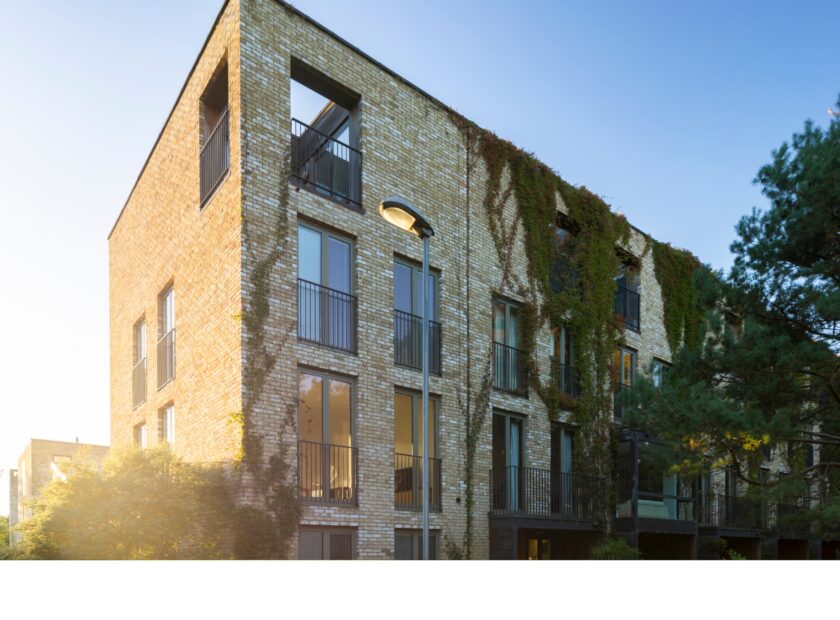Since Jack Airey, the author of a report advocating a shift to zonal planning, moved into the number 10 policy unit there has been much discussion about what a move to zonal planning might actually mean. This speculation has intensified over recent weeks with reports in the Financial Times of a new advisory committee being asked to look at zonal planning as the basis for a radical change to the planning system. In the same week as that report in the media, someone with a dark sense of humour circulated a black edged card notifying us of the death of English democratic planning.
The report in the Financial Times stated: Central to the proposals are the introduction of a zonal planning system and the creation of special development zones, in which private developers will play an expanded role. Robert Jenrick, communities secretary, said the government wanted to “rethink planning from first principles” with a shake-up designed to accelerate the process. It also claimed that Ministers wanted planning reforms agreed by July, so they could be packaged as part of an economic announcement by the Chancellor. There is no official confirmation yet of the Number 10 committee nor how its work will fit in to Planning White paper process.
We do know that the Government’s Planning for the Future Statement, published on the 12th March, made reference to their intention to ‘expand the use of zoning tools to support development’, in order to ‘speed up the planning system,’ but these measures continue the piecemeal deregulation of planning in damaging but bite size pieces. The latest move is to allow the upward extension of homes by two stories without planning permission.
But the recent reports of more radical planning reforms mean that there are, understandably, concerns that a more fundamental move to zonal planning may be considered by the mysterious Number 10 advisory committee. What’s fascinating about this is that at no time has the government ever set out what it actually means by a radical rethink. Our only guide is a number of papers from those think tanks sympathetic to deregulation, who see zonal planning as a proxy for removing a layer of democratic accountability in planning.
Those advocating zonal planning have pointed to North America, the Netherlands and Japan and these zonal planning systems display a huge variety of character. International learning is always important, but these countries have entirely different constitutional arrangements, legal systems and structures of local government. We should not pretend that introducing a new zonal planning system in England would not involve huge disruption and community concern.
The basics of a zonal planning system as set out by Jack Airey when he was at Policy Exchange would involve designating a zone where development in accordance with a code is automatically approved. Any developments not specifically prohibited by the code would also automatically be allowed. This sounds easy but in practice would result in a great deal of legal challenge as to whether something that was considered to be a novel technology was covered by zonal code restricting development. Lawyers are going have tremendous fun on the textual analysis of these codes.
The question of whether zonal planning produces good outcomes for people hangs entirely on the quality and scope of the code. The advocates of the system have never set out the detail of these codes but we know that ‘light touch’ regulation for permitted development has produced some shocking 21st century slums. The core difference between the of code-based zones and our current system is that at present plans set out locations and policy but politicians get to decide on the final decisions on planning applications. This is a two stage process with two opportunities for accountability and oversight, one on the plan and one on the final consent. As a result, the heart of this debate is about local accountability and democracy. Zonal planning would give one opportunity for democracy when the code was prepared and then reviewed.
So this is a straight trade off between certainty and democracy. Zonal code-based planning can provide greater certainty to all parties about the outcomes of planning decisions. And this may be seen as an attractive proposition to some frustrated with the current system. But, because securing positive outcomes in the built environment is highly complex and because there is no flexibility to respond to new circumstances at the final consent stage, affective zonal plans and ordinances are necessarily highly detailed. There are some benefits to the certainty this creates for businesses and communities but it is not a system which responds well to innovation. And we are in a period of rapid innovation in relation to, for example, renewable energy technology.
If the advocates of zonal planning want to make international comparisons it is also important they tell the whole story. Code or ordinance-based systems have a chequered international history. In the USA zonal ordinances were used openly to secure racial segregation in many cities. Even after such city ordinances were ruled unconstitutional, codes were manipulated to exclude lower value homes and therefore the lower income, often black, populations who relied upon them. The point is that there is nothing inherently good or bad about zonal planning, it all depends on the precise detail of its implementation.
We do however recognise our discretionary planning has real problems, not least the uncertainty of the status of local plan policy and time it takes to prepare a plan. It’s also true, as we found in the Raynsford Review, that some denigrate the involvement of local politicians and communities in the final consenting stage of decision making. Politicians, it is alleged, can at times be fickle, unreasonable and swayed by local campaigning. But then this applies to all forms of democracy and in fact local politicians work under much tighter rules of probity that their national colleagues. However, the current system does allow a much greater degree of flexibility to respond to changing circumstances and more direct accountability.
There are many problems with the existing planning system around resources and genuine community participation, but zonal planning isn’t the answer to these questions. Strengthening the status of the plan would create multiple benefits for the public and private sectors trust in planning. It would also curtail a highly speculative land market which relies on a proposition that local plans and local plan policy can be gamed for private advantage. You don’t need to remove democratic oversight of decisions to achieve this objective.
What we are being sold in arguments for a move to zonal planning is soft words about design but no detail on scope or content of these codes. We are being asked to accept this on trust while one half of the democratic basis of local planning is removed. This is a bad deal for communities and a sad day for local democracy. And this matters given the powerful lack of trust that already exists between many communities and the development sector. This trust has been badly eroded by deregulation which, in the case of permitted development, has removed political oversight. Public trust cannot be fixed by removing accountability from individual decisions.
English planning has been hacked up and demoralised over the last decade so it’s perhaps not surprising it’s not looking at its best. We recognise that the current planning system needs change, but it is ironic that some of the worst aspects of the system, like the outcomes of permitted development, were also driven by precisely the same voices that are now calling for zonal planning. There is a better, more practical and more effective way of improving planning but the focus must be on how to achieve better outcomes for people and communities, while also restoring public trust. We cannot focus on speed of decision making alone. Radical planning reform is not a party game, it requires a detailed grasp of the problem you’re trying to solve and the structures you’re trying to change. There is a risk that in ‘rethinking planning from first principles’ the principle of democracy is likely to be the real casualty.
In February, the TCPA published three main asks from the upcoming White Paper here.
Fiona Howie also wrote to the Prime Minister, calling on him to use the White Paper to strengthen the planning system particularly in its resilience to the climate crisis. More about that here.




